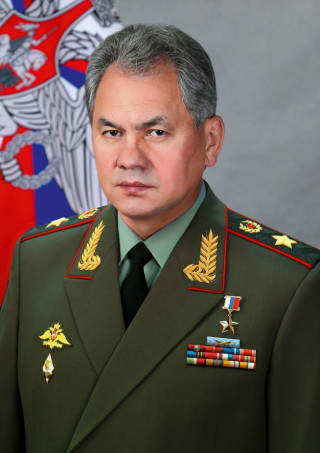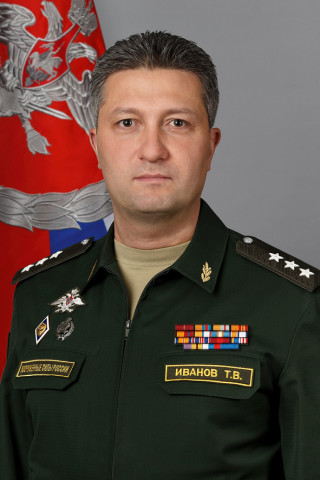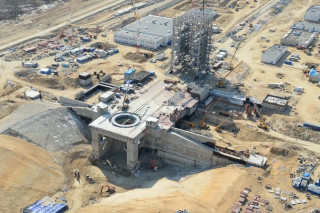In October this year, under a special decree from president Vladimir Putin, the Russian government set up a new state corporation to specialise in military construction – a public sector market believed to be worth around one trillion roubles, or £11.5bn.
The new corporation, known as the Military Construction Company (MCC), is to be managed by the Russian Ministry of Defence and will carry out all types of construction works required by the armed forces, from the building of specialist military facilities to the construction of social infrastructure including housing for military personnel.
According to deputy defence minister Timur Ivanov (one of those who will be directly responsible for the operations of the MCC) the new outfit is intended to completely separate military construction from the commercial construction sector in Russia.
“That will allow us to prevent the bankruptcy of the corporation as a consequence of various external factors, as well as exposure to unfair competition in the market,” says Ivanov. And unlike a commercial contractor, the new enterprise will be a non-profit organisation.

The idea of a dedicated government-run military construction company was first mooted in 2017 and in March 2019 defence minister Sergei Shoigu confirmed that the project had received final approval from Putin and that actual implementation would start soon.
Prior to September 2017, all of Russia’s military building, civil engineering and associated activities were regulated by the Federal Agency for Special Construction, known as Spetsstroy. For many years, corruption had been rife throughout the agency, with theft on a massive scale resulting in the breakdown of a number of large projects. In 2016, Putin decided to liquidate Spetsstroy, a process that was completed the following year, and replace it with the MCC.
Spetsstroy’s replacement comprises about a dozen large-scale divisions, each of which will be responsible for a specific sector of the military construction industry. As well as construction work, MCC will also carry out R&D at specially-established research institutions, according to Ivanov. It will even have its own dedicated suppliers and producers of raw materials.
By consolidating military construction under one government-run organisation, the Russian Ministry of Defence hopes to reduce significantly the number of third-party contractors involved and increase the volume of works carried out in-house to 60%. It is hoped that this will also simplify the existing bureaucracy and cut managerial staff numbers by at least 30%.
The new corporation, which officially begins its operations in the new year, includes, in addition to senior Russian military officers, representatives of several other state agencies on its board; a chief executive has yet to be appointed.
Although there are currently no other state-run bodies in Russia comparable with the MCC in terms of functions, tasks and the territorial scope of its operations, the new organisation is by no means without precedent. In fact, the creation of the MCC can be seen as a throwback to the command economy of the Soviet era.
The MCC will be responsible for almost 100% of projects managed by the Ministry of Defence and will carry out the entire range of construction and related activities, from the preparation of documentation to design, engineering and delivery on site.
The corporation will have a right to purchase land for construction on its own behalf, along with necessary property and equipment. In addition, it will be able to participate in various concessions and public-private partnership projects.

According to the Ministry of Defence, the new corporation will be able to apply for funding for its activities from the Russian federal budget under the existing Russian State Armament Program until 2027. The total sum available to MCC is expected to exceed one trillion roubles (£11.5bn).
According to Shoigu, more than 3,700 new military buildings and structures are already planned for construction next year, and all will be built by the new MCC. Priority is being given to projects “within the interests of forces of nuclear deterrence” as well as installations designed for the deployment of new weapons and equipment, he adds.

Projects planned for completion in 2021 include new infrastructure to speed up the deployment of the Yars, Sarmat, and Vanguard missile systems, and construction of a network of military barracks on the Kuril archipelago, a chain of islands stretching approximately 1,300km from Hokkaido in Japan to Russia’s Kamchatka Peninsula.
Other projects due to get underway next year include new infrastructure for the Bal coastal defence system (an anti-ship cruise missile system), as well as the completion of a new branch of the Nakhimov Naval School in the city of Kaliningrad.
The MCC is also tasked with the completion of the Vostochny Cosmodrome, a new Russian spaceport. This flagship project is the most important of the major schemes derailed by corruption under Spetsstroy. In fact it was this project that proved to be the last straw for Putin, who announced that he was taking personal control of the project in 2015. Work on the spaceport started in 2010 and it is still far from completion.
In early September 2019, deputy prime minister Yury Borisov gave an interview to the Russian business paper Vedomosti in which he expressed his dissatisfaction with the current rate of building of Vostochny Cosmodrome and outlined the government’s plans to hand over the project to the MCC (despite criticism from Dmitry Rogozin, head of the Russian space agency Roscosmos).
Rogozin has his own reasons to distrust the MCC, but he’s not the only Russian to voice reservations about the new organisation. The majority of Russia’s independent analysts in the field of construction regard the establishment of such a corporation as a de facto monopoly that poses a serious threat to the domestic segment of military construction.
Vladislav Vorotnikov, a prominent independent Russian expert in the field of construction, has said that although the MCC could make significant savings and prove economically feasible for the Russian defence complex in the long-term, its existence violates the basic principles of market competition.
Vorotnikov and other analysts have warned that the creation of such a monopoly will reduce the level of transparency of the entire industry, since all project functions – design, construction and supervision – will be concentrated in one place. Such a lack of transparency is far more likely to encourage corruption – even within such an enclosed supply chain – than to eradicate it.
The abolition of all competition in the sector is also unlikely to deliver improvements in efficiency, according to analysts, who argue that it could potentially affect the quality and timing of projects and lead to other negative consequences such as a stifling of innovation and a slow-down in the adoption of new technologies by the sector.
In most international markets it is normal practice for government agencies to attract private companies for the implementation of major projects and allow them free access to tender lists. The creation of state monopolies is uncommon in a democracy and incompatible with a free-market economy. It is far more typical of a country governed by a totalitarian communist regime – the most obvious example being the Russian state prior to the collapse of the Soviet Union in 1991.
For almost 30 years Russia has been open for business with the international community and many foreign enterprises have flourished there to the mutual benefit of their shareholders and the Russian economy.
The Western model, in which construction companies offer specialist expertise in specific sectors ensures a high level of competence and quality. But Russia’s new MCC, conceived as a jack-of-all-trades serving just one client, is unlikely to deliver competitive results in terms of quality, timely delivery or cost-efficiency.
It now seems that Vladimir Putin’s increasing use of Cold War rhetoric, his political confrontation with the West and his military aggression towards neighbouring countries are not the only characteristics he shares with his Soviet predecessors. He appears to have developed a liking for their economic policies, too.
• Eugene Gerden is an international freelance writer based in Russia
This article was first published in the Feb 2020 issue of The Construction Index magazine (magazine published online, 25th of each month.)
UK readers can have their own copy of the magazine, in real paper, posted through their letterbox each month by taking out an annual subscription for just £50 a year. Click for details.

Got a story? Email news@theconstructionindex.co.uk


